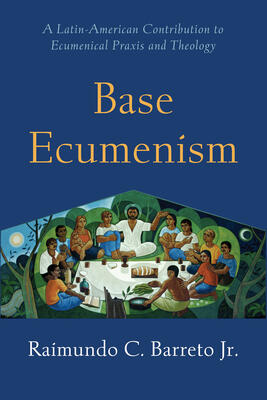
Base Ecumenism: Latin American Contributions to Ecumenical Praxis and Theology
von:
Raimundo C. Barreto
Sprache: Englisch
Format: Kindle
ISBN 10: 1506430155
ISBN 13: 9781506430157
Veröffentlichungsdatum:
June 24th, 2025
Verlag: Fortress Press
Seiten: 260
Genres: Religion & Spirituality, History
Base ecumenism emerges as a significant concept rooted in Latin American contexts, addressing the interrelationship between faith and social justice. Raimundo C. Barreto explores how this movement transcends traditional boundaries of ecumenical dialogue, emphasizing collaboration among diverse Christian communities. By focusing on grassroots experiences and local actions, Barreto highlights the transformative potential of this approach, advocating for a more inclusive and socially engaged theology.
Delving into specific examples and historical frameworks, the work showcases the contributions of Latin American theologians who seek to unite various denominations under shared commitments to communal well-being and equity. The narrative unfolds with a rich tapestry of voices that enrich ecumenical discussions, showcasing a vibrant landscape of faith expressed through action.
Through engaging prose, Barreto invites readers to reconsider the role of ecumenism in contemporary society, proposing that true Christian unity must be rooted in the struggles and aspirations of marginalized communities. This exploration not only speaks to theologians and church leaders but also resonates with anyone interested in the intersection of faith, justice, and community action.
Delving into specific examples and historical frameworks, the work showcases the contributions of Latin American theologians who seek to unite various denominations under shared commitments to communal well-being and equity. The narrative unfolds with a rich tapestry of voices that enrich ecumenical discussions, showcasing a vibrant landscape of faith expressed through action.
Through engaging prose, Barreto invites readers to reconsider the role of ecumenism in contemporary society, proposing that true Christian unity must be rooted in the struggles and aspirations of marginalized communities. This exploration not only speaks to theologians and church leaders but also resonates with anyone interested in the intersection of faith, justice, and community action.